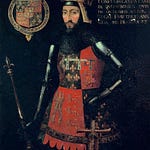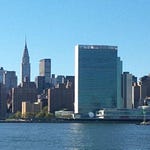WIPO: Evidence Suggests That in Some Industries IP Protection is Necessary | Why You Should Watch Sam Altman | The Devil Wears Prada
Calling human labour less than real resources and ignoring the fact that to produce the news significant material resources are necessary.
Nov 05, 2024
∙ Paid
The Brief
Hear first hand from the diplomats, tech executives, investors, UN and EU officials that are changing the world through dialogue and are using emerging technologies for good.
Hear first hand from the diplomats, tech executives, investors, UN and EU officials that are changing the world through dialogue and are using emerging technologies for good. Listen on
Substack App
Spotify
RSS Feed
Recent Episodes










